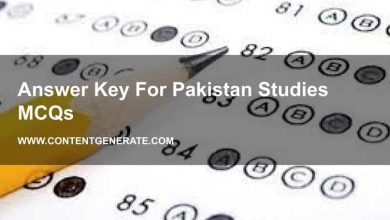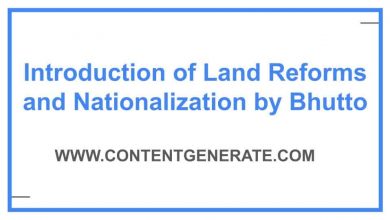Guiding Principles of Islam and their Implementation in Pakistan

Guiding principles of Islam form the basis of Pakistan Ideology. In other words, components of Pakistan ideology are in reality components of Islam. Muslims of the Indian subcontinent struggled to achieve Pakistan where they could live their lives as per Islamic teachings.
This article discusses the components of the Pakistan Ideology and the status of its implementation.
Contents
Components of Pakistan Ideology
As discussed in the introduction, the components of the ideology of Islam also form the components of the ideology of Pakistan. They include the sovereignty of Allah Almighty, Social Justice, Equality, Equity, and Brotherhood, democracy, and minority rights.
Implementation
According to the constitution, Pakistan would be an Islamic welfare state. The Objectives Resolution 1949 as part of the preamble of the state constitution asks for the implementation of guiding principles of Islam.
The basic objectives of the resolution included;
- Sovereignty over the entire universe belongs to Allah. This meant that the rulers in Pakistan will exercise their powers as a sacred trust delegated from Allah. With this in mind, they will exercise their powers as per Islamic teachings.
- Guiding principles of Islam i.e. democracy, equality, tolerance, freedom, and social justice would find a place in society. It meant that the law of the state will promote and help implement these ideals of Islam in Pakistan.
- The constitution would guarantee the safeguard of the rights of minorities. They could profess their religion and faith. They would also have the right to promote their culture.
- The law will provide the fundamental rights of people.
- The judiciary would be independent.
Practical Implementation
Despite being part of the constitution, the basic components of Islam have never been implemented in letter and spirit for one reason or the other. The constitution has been suspended and subverted by dictators thus curtailing any chances of development of democracy in the country. Similarly, rigging in elections and misuse and abuse of power is a rule in Pakistan rather than an exception.
Although minorities have the right to freely practice their religion and promote their culture, there is a minimal benefit that they can reap their provision. They do elect their representatives through separate electorates but their residential areas give a miserable picture. Their religious places are attached, set on fire. Abduction and forced conversions of minority girls seem to have become a normal matter. The state seldom comes into action against these anomalies.
Although, efforts have been made to provide its citizens with all necessary facilities still country is plagued with the menace of nepotism, favoritism, and all types of corruption. The poor and meritorious are bypassed whereas the inept and incompetent find their places in important public positions. Corruption seems to have permeated the fabric of society and accepted as a necessary evil.
Economic disparity is another core issue that Pakistan has been facing. The main reason behind this disparity is an inequitable distribution of resources among different regions. Consequently, this problem has led to regionalism – thereby weakening national integration. Welfare programs like the Benazir support program, Interest-Free loans, Yellow cab, Ehsas program, Insaf card are some small steps to help the poor and needy but in the face of inequitable distribution of resources, such welfare programs mean very little.
Reasons responsible for failure in implementing basic components of ideology
Following are some of the main reasons responsible for Pakistan’s inability to implement the guiding principles of Islam.
Feudalism
In Pakistan, few landlords control 98 percent of the arable land. Peasants work on their lands and hardly meet their subsistence needs.
Corruption
Corruption is one of the menaces that has plagued the country. It acts as a barrier in the way towards the implementation of good governance.
Lack of accountability/politically motivated accountability
There is a lack of accountability and check and balance in different departments of life. The ruling parties have usually influenced the accountability process. Cases initiated by institutions like NAB, FIA, etc. are often characterized by political motivation and rivalry which has caused the loss of trust in these institutions.
Class differences
On basis of socio-economic status, Pakistani society has different classes. The elite class which consists of two percent of the population enjoys all perks and privileges of life. This class has control over all means of production of wealth. Moreover, the same class dominates top military, media and government leadership, and parliament.
Terrorism
Terrorism is another issue that has acted as one a barrier to in way towards the development of the country. Fighting terrorism has caused huge losses to the economy of the country and irreparable loss of security personnel and the general public.
Lack of a weak democratic system
The bureaucracy and military have dominated the political system of Pakistan over the years. They have been interfering with the political policies and governments time and again and asserted their influence. The military has directly ruled Pakistan for 35 years in 72 years. This interference has acted as a barrier to the promotion of democratic values in the country.
Inequitable distribution of resources
Inequitable distribution is the main cause of uneven development in a state. In Pakistan, this was also one of the main reasons behind its disintegration in 1971. Inequitable Resource distribution is still a major issue resulting in regional economic distribution.
To give an example, Karachi provides more than 70% of the revenue to the whole country. But successive governments have ignored Karachi in terms of development. Similarly, Balochistan provides natural gas to the whole country but the residents of Sui do not have access to natural gas.
The government needs to make serious efforts to overcome the problems in the implementation of the concept of Islamic good governance.




